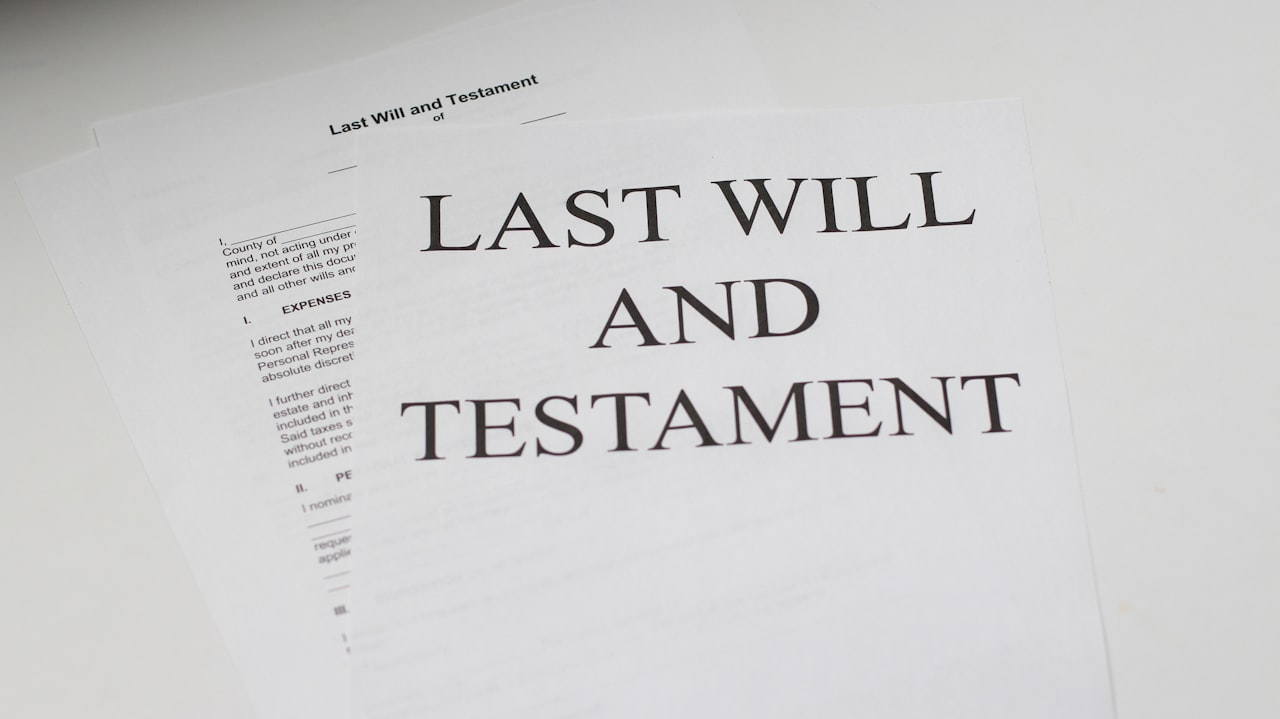How to Contest a Will
Blog

Blog

Contesting a will is a legal process in which someone challenges the validity of a will. While laws and procedures can vary by jurisdiction, here are general steps to consider if you want to contest a will. It's essential to consult with an attorney experienced in estate law in your specific jurisdiction, as the laws and procedures can differ significantly.
Consult an attorney: Seek legal counsel from an experienced estate attorney in your area. They can provide guidance on whether you have valid grounds to contest the will and help you navigate the legal process.
Determine valid grounds: Contesting a will is not a simple matter and can only be done under certain circumstances. Common grounds for contesting a will include:
a. Lack of testamentary capacity: If the testator (the person who made the will) did not have the mental capacity to understand the nature of their actions when creating the will, it may be contested.
b. Undue influence: If someone exerted excessive pressure or influence over the testator to create or change the will in their favor, the will may be contested.
c. Fraud or forgery: If there is evidence that the will was forged or that fraud occurred during its creation, you may have grounds for contesting.
d. Improper execution: Wills must meet specific formal requirements, including witnessing and signing. If these requirements were not met, the will may be contested.
e. Revocation: If the testator had revoked the will or created a new one after the contested will was made, this may impact the validity of the contested will.
File a legal challenge: Your attorney will help you draft and file the appropriate legal documents, typically known as a "petition" or "complaint," with the probate court in the jurisdiction where the will is being probated. This initiates the legal process.
Notify interested parties: Notify the executor of the will and other interested parties, such as beneficiaries and heirs, that you are contesting the will. They will have the opportunity to respond to your challenge.
Gather evidence: Collect evidence supporting your claim, such as medical records, witness statements, and any other documents that substantiate your grounds for contesting the will.
Mediation or negotiation: In some cases, parties may attempt to resolve the dispute through mediation or negotiation before going to court.
Court proceedings: If a resolution cannot be reached through negotiation or mediation, the case will proceed to court. Both parties will present their arguments, and the judge will make a decision based on the evidence and applicable laws.
Appeal: If you are dissatisfied with the court's decision, you may have the option to appeal, depending on the laws in your jurisdiction.
Remember that contesting a will can be emotionally and financially taxing.
Dorsey's Realty Disclaimer - Remember, consult with an attorney who specializes in probate and trust matters to ensure that the disclaimer meets the specific legal requirements and addresses the unique circumstances of your situation. This disclaimer is a general example and may need to be customized to fit the specific circumstances and legal requirements of the probate estate or trust you are dealing with. It is always advisable to consult with a legal professional to ensure compliance with relevant laws and regulations.
Contact your dedicated Certified Residential Real Estate Probate Specialist Fred Dorsey "Prince of Probate" to schedule a telephone consversation. 301.760.2178
Local Expertise. Global Presence
Stay up to date on the latest real estate trends.

Blog
Estate Plan

Blog
Distrubute Property among heirs in Maryland

Blog
Irrevocable Trusts

Blog
Protect your legacy and reduce stress for loved ones with these smart storage solutions.

Blog
Selling a Probate Property

Blog
Setting up a Trust

Estate
Managing an Estate

Estate
Jointly Owned Assets in Probate

Blog
Revocable Trust
The Dorsey's provide “Experience, Honesty, Connection, and Trust”